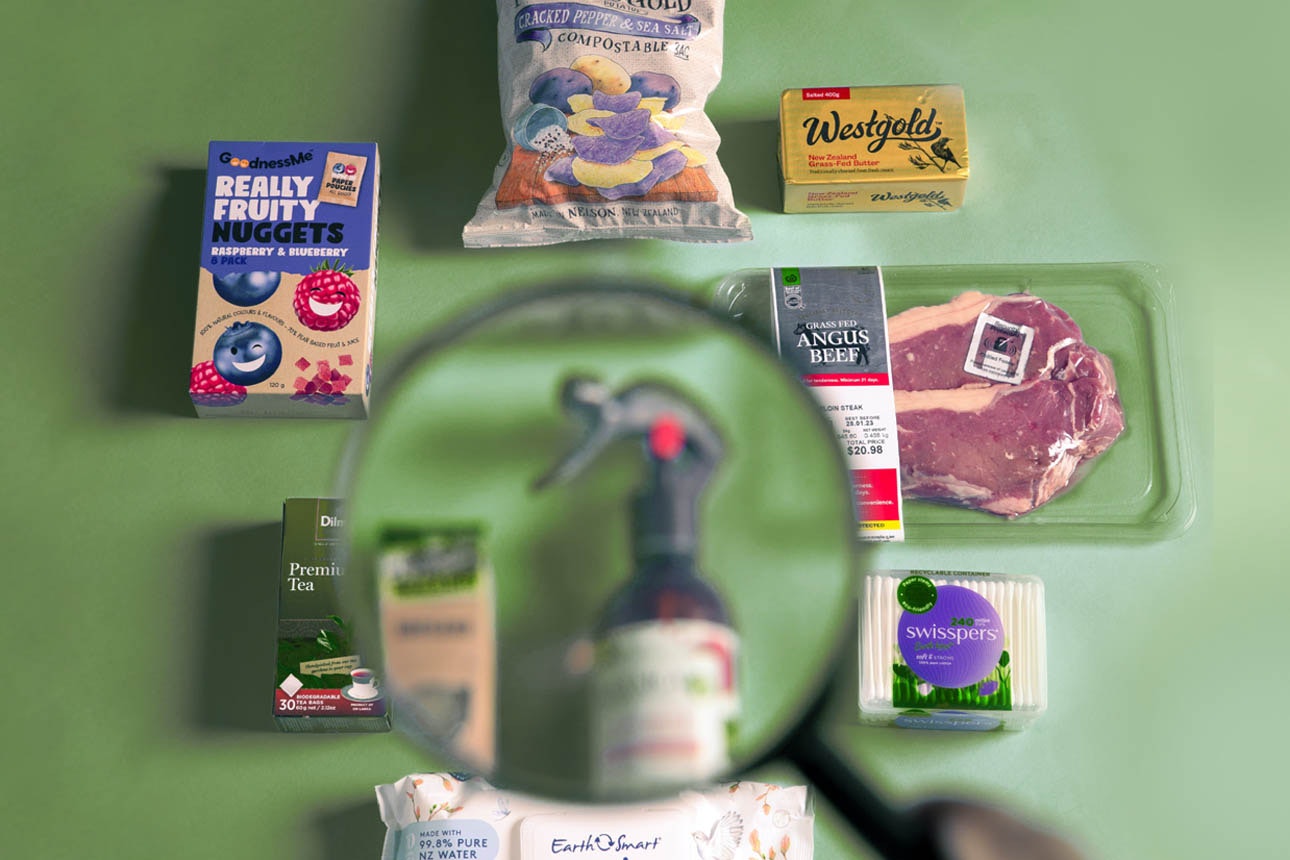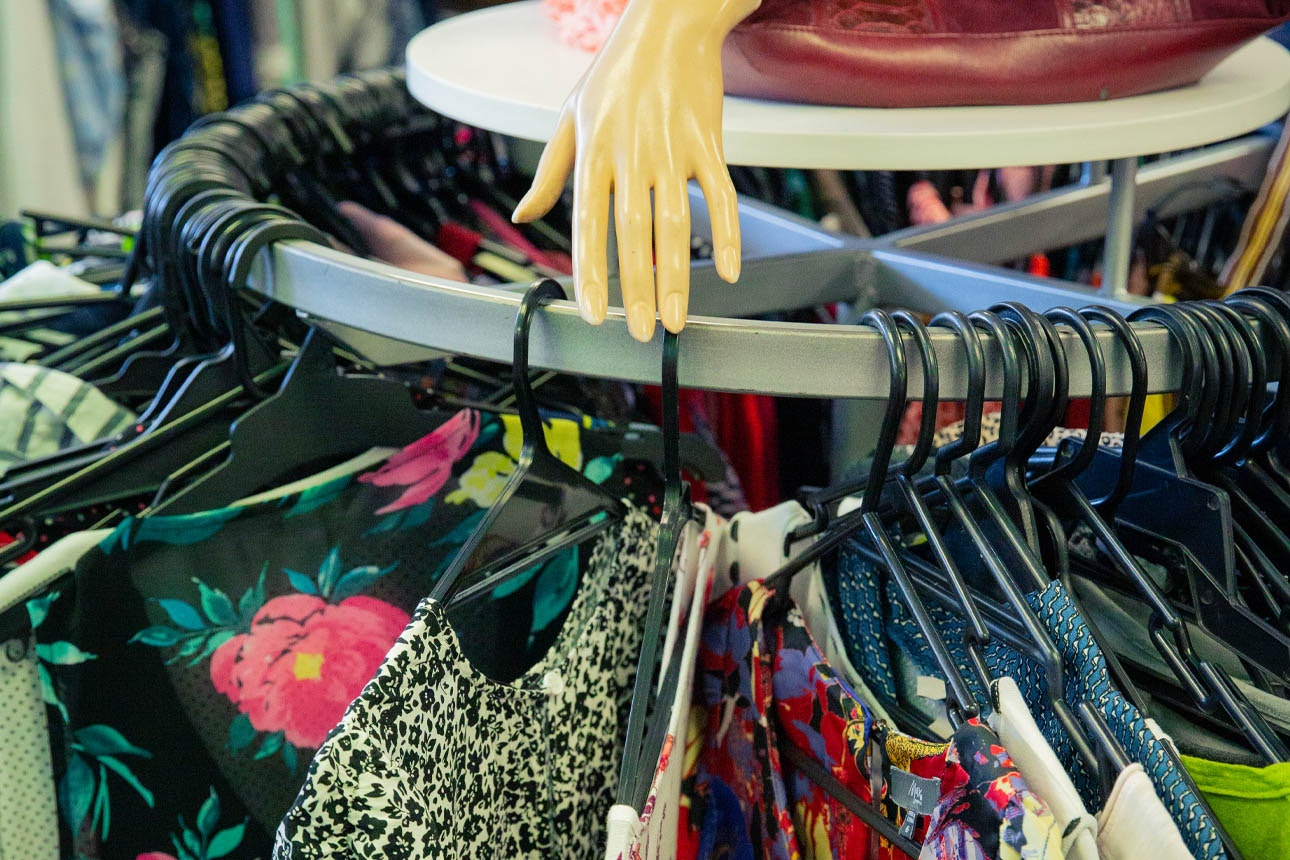
By Rebecca Styles
Research Lead | Hautū Rangahau
Words like “natural” or “eco-friendly” along with claims of buying products that “care for your skin and the planet” may convince us we can buy skincare that’s good for our skin and the environment. But is that the case?
The Wellington store of the Aussie cosmetic retailer Mecca was humming with people when I went to shop for products on a weekday lunchtime.
Looking closely at the range and price of products, I realised I’m quite minimalist (and cheap) when it comes to make-up. A bit of cleanser, body lotion, tinted moisturizer and some lippy and I’m generally good to go. Luckily my glasses hide the dark circles under my eyes.
When I do shop for cosmetics, I try to look for products that have a minimal impact on the earth, but this is increasingly difficult to evaluate during a lunch hour.
Consumer shopped at a range of stores – from Mecca to the supermarket – for cosmetics and evaluated the green claims on cosmetics.
Plant based and eco-friendly face wipes
Nivea MicellAIR Skin Breathe Cleansing Wipes are “100% plant based” and “soft naturally derived wipe tissue” which biodegrade.
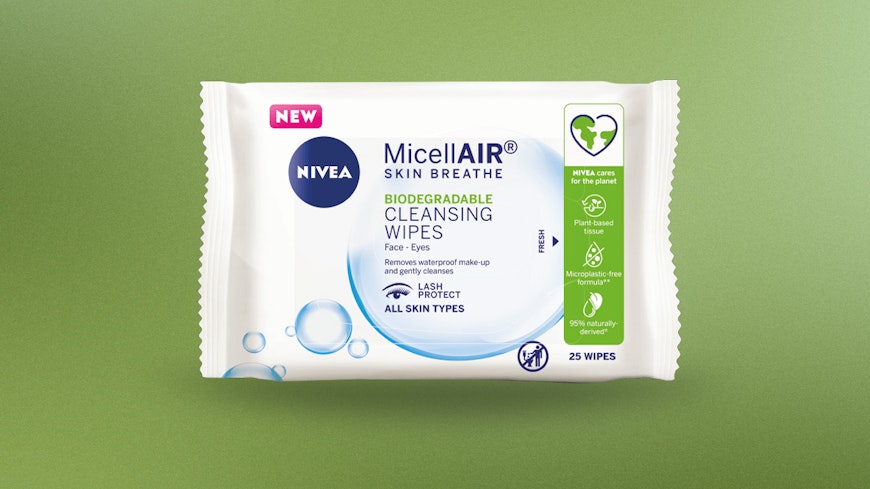
The wipes are made with 100% viscose (wood pulp) which is certified by a third party.
Nivea also provided evidence of testing, which shows the viscose fibre will biodegrade in water within 28 days. Yet, the spokesperson for Nivea also said the make-up you wipe off your face may not be biodegradable and “may lead to non-biodegradable particles entering the environment”.
Given most users will throw the wipes in the bin after use, the wipe will likely end up in landfill where it’s harder to determine how long it will take for a product to biodegrade.
Nivea also makes claims about reducing the packaging size and reusing packaging off-cuts. Yet, the packaging is a soft plastic which is hard to recycle in Aotearoa.
Face wipes, along with baby and hand wipes, can cause damage to our waterways if they’re flushed down the loo. The Nivea product does have a logo saying not to flush the product. However, if it or other wet wipes or sanitary products are flushed, “rag monsters” can form and block wastewater pipes.
It’s also a single-use product. We consulted with Palmerston North dermatologist Dr Louise Reiche about the face wipes. She said it’s friendlier on your wallet and the environment to use a cleanser and a wet flannel.
Garnier sells a Micellar Reusable Eco Pad that can be reused and chucked into the washing machine once a week. But these pads are made from polyester – a fabric that’s likely to shed microplastics and therefore not very “eco”.
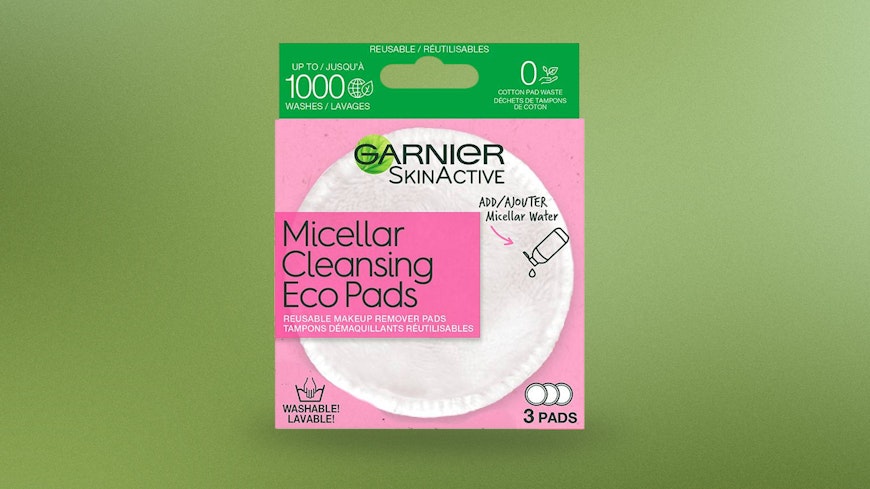
Biodegradable face masks
“Biodegradable” is on the front of the packaging for the Essano Collagen Boost sheet mask.
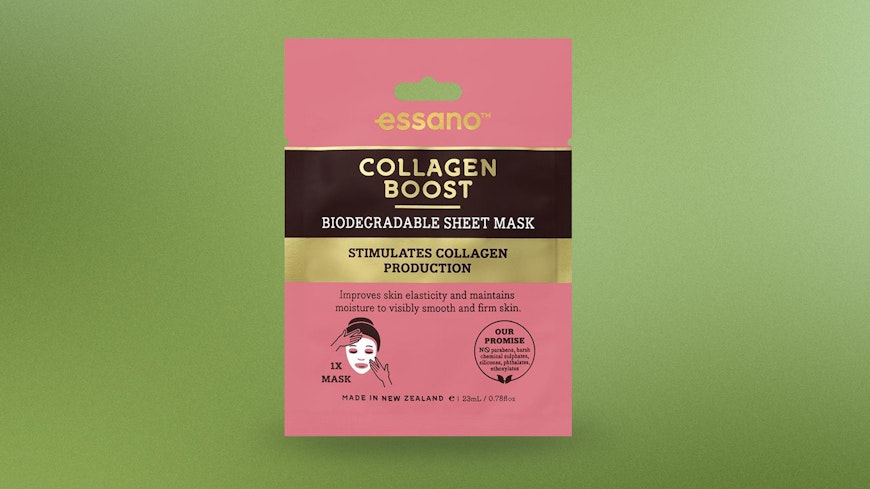
The best practice for labelling a product as biodegradable is to have information on the pack stating the conditions in which it biodegrades which is backed-up by a recognised compostability standard. This guidance comes from WasteMINZ, an organisation that represents the waste and resource recovery sector in Aotearoa.
While the package does say the mask will take six months to biodegrade, it doesn’t say in what conditions.
We asked Essano to back up the biodegradability claim. It sent us evidence of biodegradability testing in soil carried out by a reputable certifier, but the certification expired in July 2022. Just prior to publication its supplier updated the certification.
We consulted with Sarah Pritchett, sector programme manager from WasteMINZ, who said that while the mask has been tested to biodegrade in soil, it would depend on the climate as to how fast (or slow) it biodegraded.
“It’s not a very meaningful certification,” she said.
A spokesperson for Essano said it will add information to its website about how the product biodegrades and will incorporate this information on pack in the future.
It wasn’t the only face mask to make a biodegradability claim. The Skin Republic Retinol Hydrogel Under Eye Patch says the packaging and the patches are biodegradable, but without any statement under which conditions or timeframe it will biodegrade.
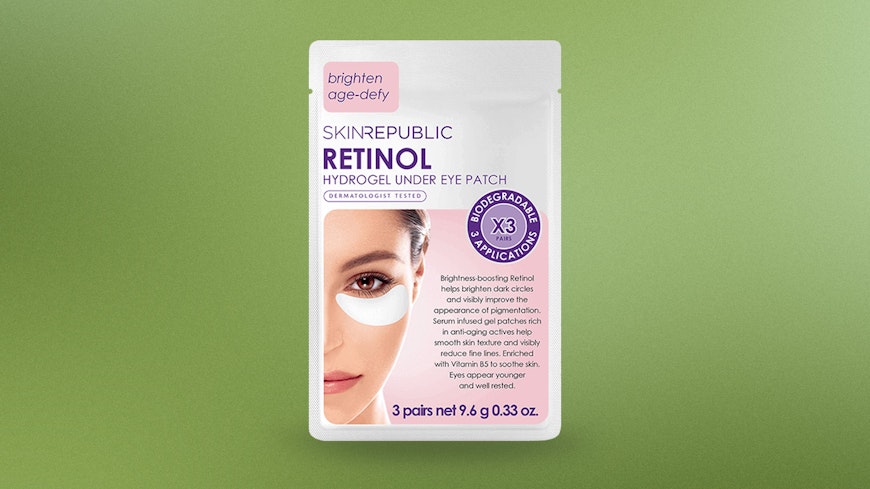
While Skin Republic did show us its biodegradability testing, we think information about the conditions the mask biodegrades in should be on the pack.
Body wash that saves water?
On the back of the Palmolive Naturals body wash it states “save water” with an image of the globe with a toothpaste smile on its face, and a link to where you can learn about saving water.
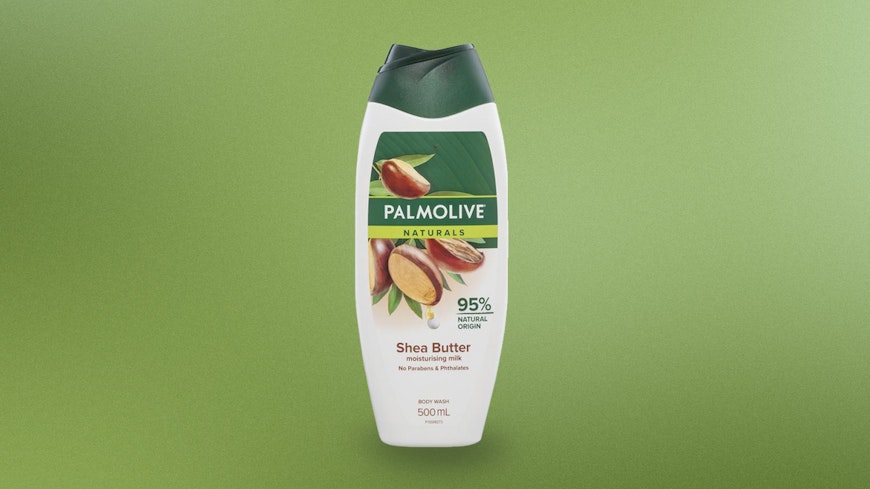
I followed the link, assuming I would find information about how the body wash contributed to saving water. Instead, I found advice about consumers turning off the tap while brushing their teeth to reduce water consumption.
It claims “you can save up to 64 cups of water every time you brush your teeth” which seems almost hyperbolic. Either I’m not brushing my teeth for long enough, or lots of people have their taps running full tilt.
While turning the tap off will save water, it’s hardly groundbreaking and doesn’t relate to the body wash. It could also be seen as placing the responsibility of saving water on the consumer, rather than the manufacturer.
A spokesperson for Colgate, the makers of Palmolive, said “the water required to use our products represents the largest portion of our overall water footprint” so it encourages water conservation as part of its efforts. It focuses on the “turn off the tap” campaign because the company is the “world’s leading toothpaste company.”
In Colgate’s 2022 water security report, it states it uses 8,887 megalitres of water a year, discharging just over half of it, leaving 4,244 in its products globally.
It takes 4 million cups to make up one megalitre.
Between 26–50% of its water consumption was taken from areas under water stress, meaning they are experiencing water scarcity.
Two to three billion people globally experience water shortages, according to the 2023 UN World Water Development Report. It predicts between 1.7 to 2.4 billion people will experience water scarcity by 2050.
While Colgate is making changes in production to reduce water usage, “because water is a main ingredient” it’s challenging. The company is planning a further 25% reduction, based on its water use in 2010.
In the past 18 years it has halved the amount of water it uses in its products. It’s also developing products that contain less water or products that don’t need as much water to use in the home.
Water is a main ingredient in a lot of personal care products, including the Palmolive body wash. It’s also referred to as a “naturally derived” ingredient, along with others listed on the pack.
The word ‘natural’ can suggest to shoppers that the product has a good environmental performance.
Given the quantity of water used in cosmetics, and the environmental impacts of its use, it’s hard to see how any cosmetic with water as its main ingredient can consider itself green. While it may be “natural”, its use is not without environmental impact.
Sustainability offset schemes
Shoppers who sign up for Ren’s “Clean Rewards” programme can spend their reward points on cleanups of “ocean bound” plastic. So, rather than get a discount on a Ren product, you can help clean up the planet via a third-party organisation called Verdn.
Verdn, via its provider Empower, arranges for plastic to be picked up from beaches and rivers in Africa and Asia.
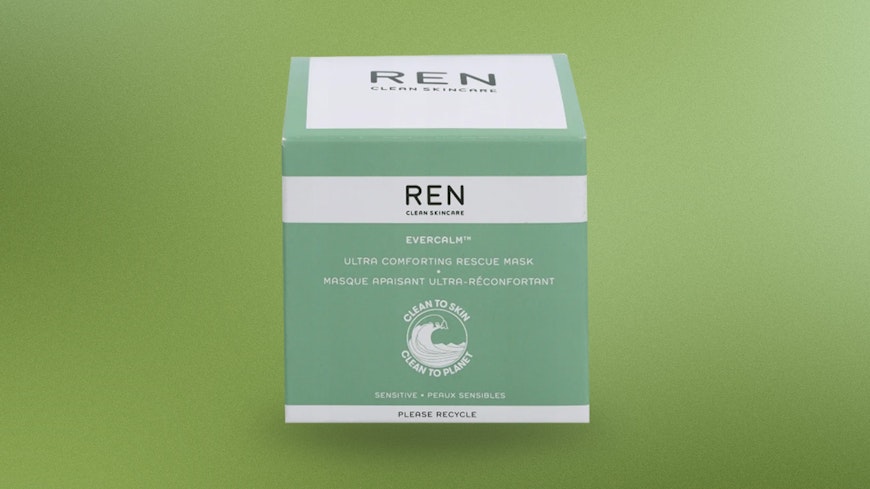
We think this element of Ren’s “Clean Rewards” scheme places the responsibility for the waste it produces on the consumer, rather than the business.
There are also bigger concerns at play. Critics of these so-called “plastic credit schemes”, like the global initiative Break Free From Plastic (BFFP), say they don’t reduce the amount of plastic produced. Instead, the schemes “allow plastic pollution to continue in one location so long as plastic pollution is taken care of in another,” say GAIA, a global collective advocating for zero waste solutions.
It means the schemes can allow a company to portray an “eco-friendly image” while still producing the same amount of plastic. It could lead consumers to buy plastic in the belief it doesn’t make the problem worse.
It can also mean that people in the Global South (like Africa and some parts of Asia) are used for their cheap labour and will bear the brunt of health impacts from collecting plastic.
We asked Ren, and its parent company Unilever, to respond to these criticisms. It said the partnership with Verdn complements its existing sustainability efforts which includes its Zero Waste pledge. The pledge is based on ensuring its packaging is recyclable or made from recyclable materials.
It said its reward programme is not a credit scheme.
Ren’s not the only cosmetic brand partaking in what we consider to be a plastic offset scheme.
Kit, a Mecca brand, is part of an Australian plastic offset scheme called The Waste Revolution. For every kilogram of plastic Kit uses, it pays for the same amount to be recycled or collected.
Kit’s claim of being “certified plastic neutral” is based on the offset scheme.
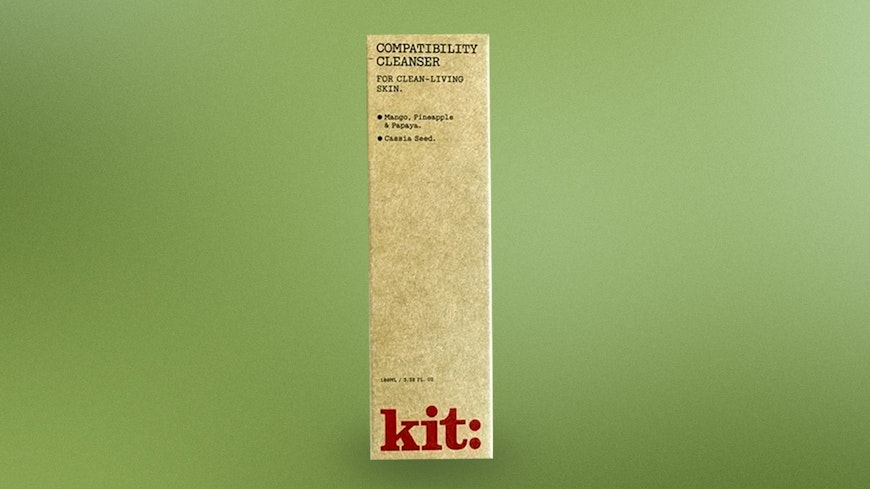
The plastic from The Waste Revolution is turned into fenceposts and donated to Blaze Aid, an Australian charity that helps to rebuild farms after fires.
A spokesperson from The Waste Revolution said it collects plastic from industry and agriculture. It also sourced some plastic from REDcycle, an Australian soft plastics scheme, which stopped late last year because plastic was being stockpiled rather than recycled.
While Kit’s scheme is closer to home, it’s still offsetting its plastic use rather than using alternative packaging for its products.
There’s no global standard for assessing how plastic credit is defined or counted, and most of the schemes are run by private companies that set the rules.
As part of the European Commission’s Green Claims directive, plastic credit offsets will be under more scrutiny.
If the manufacturer can’t back-up the claim with robust evidence, it will be considered a “generic environmental claim” and banned.
The problem with in-store recycling schemes
Mecca has partnered with TerraCycle, “the global leader in recycling the ‘unrecyclable’” since August 2019.
The cosmetic store says it diverts 415,000 empty cosmetic packages each year through the scheme – which equates to 30,000kg– in Aotearoa and Australia.
TerraCycle develops “recycling solutions” for waste that can’t be collected and recycled locally.
Rather than producing packaging that can’t be recycled by local councils, zero waste experts would prefer manufacturers put their products in containers that can be easily recycled or refilled.
I asked Martha van Arts, the general manager of Cosmetics New Zealand, why cosmetics packaging isn’t in containers that can be recycled in Aotearoa.
She said many products are, and for those that aren’t, “the reason is mainly the aesthetic – those complex plastics look beautiful,” she said.
In other instances, the formulation of a product isn’t compatible with a certain type of plastic or glass.
Van Arts said there are moves to start a stewardship programme; this could include a charge to manufacturers for disposing of packaging that can’t be easily recycled, which will act “as the stick to move away from hard to recycle” packaging.
She also pointed out that while some plastic packaging is technically recyclable, Aotearoa doesn’t have the infrastructure to process them.
We asked TerraCycle how much of the packaging collected via the Mecca scheme had been recycled. In its contracts with all its partners it’s “legally required to recycle all” the waste collected, a spokesperson said.
The beauty waste it collects is processed in South Australia. When it reaches capacity, beauty waste collected in Aotearoa is sent to North America for recycling.
“There, beauty waste processing occurs daily due to the high volume of beauty waste TerraCycle collects in the region.”
Hannah Blumhardt is the co-ordinator of the New Zealand Product Stewardship Council.
She said the packaging and products collected by TerraCycle “are those that were not designed for recycling and so the economies to cover the costs of collecting or processing them at scale aren’t really there.”
While Blumhardt acknowledges that the plastics TerraCycle collects are downcycled into other products, she said “the volumes going through the programme are teeny compared to the amount of packaging participating companies are collectively putting on the market. If TerraCycle were collecting back the actual volumes of this stuff, the whole system would probably collapse.”
TerraCycle said it has the capacity “to accept significantly higher volumes of waste from New Zealand.”
Last year, an Australian soft plastics recycling scheme called REDcycle collapsed because its recycling partners stopped accepting the soft plastics, which led to stockpiles. In February this year, REDcycle was declared insolvent. There are plans to try and restart a soft plastics recycling scheme.
Globally, only 9% of plastic waste is recycled, according to the OECD. In the Oceania region, it’s 7%.
“Global plastic production doubled between 2000 to 2019 to reach 460 million tonnes”, the OECD’s 2022 report states.
“The fundamental problem is the products are not designed to be recycled. And recycling schemes on their own cannot get us out of the plastic pollution mess we’re in; far more innovation is needed to redesign problematic plastics out of the system through strategies like reuse and refill,” said Blumhardt.
TerraCycle agreed that manufacturers “should design their packages and products to be kerbside recyclable” and it encourages its partners to do so.
“The only true solution to the waste crisis is to consume less,” it said.
Banned green terms
We’re awash with greenwashing claims. A European Commission (EC) study found over 50% of green claims were vague, misleading or unfounded, while 40% had no information to back-up the claim.
It’s planning to ban vague green claims like “environmentally friendly”, “eco” and “green” along with claims that create the impression of excellent environmental performance.
Closer to home, the Australian Competition and Consumer Commission internet sweep of environmental claims found that the cosmetic and personal care sector had the biggest proportion of concerning environment claims. Followed by the textiles and food and beverages.
We found plenty of these vague terms on the cosmetic packaging we looked at. From eco and eco-friendly to plant based and naturally responsible. And slogans like “kind and free” and “care for your skin and the planet.”
The EC also has phrases like “gentle on the environment”, “biobased”, “conscious” and “responsible” in its sights.
What’s being done to stop green claims?
Over 90% of Consumer’s Sentiment Tracker respondents didn’t know where to report a dodgy green claim.
The Commerce Commission (the Commission) is charged with stopping manufacturers from making misleading green claims under the Fair Trading Act.
It released guidance to businesses on environmental claims in 2020. It’s also “issued information or compliance advice to more than 50 businesses” making green claims in the past five years.
Two businesses have been warned about their recyclability claims, and the Commission has assessed green claims in the fashion sector.
“We have not taken any court action against a business in respect of their environmental claims, instead focussing our interactions on education: making businesses aware of their obligations and seeking, where necessary, changes in behaviour,” a Commission spokesperson said.
The Commission is currently researching the nature and frequency of green claims made by businesses across a range of sectors which “may assist us in identifying sectors and/or claims which may warrant more targeted review.”
Until it’s completed its research and decided on whether to pursue green claims, the system relies on consumers or a product’s competitor complaining to the Commission or Advertising Standards Authority after the product is on the market.
Given most consumers don’t know how to report dodgy green claims, the system appears to fall at the first hurdle.
Another barrier is that consumers aren’t checking the validity of green claims. Our data shows just over 70% haven’t checked the accuracy of green claims. And who could blame them? It takes more than a quick Google search to assess.
We also think it’s not the job of the consumer to keep businesses in check. Instead, the Commission needs to step up and do the work to benefit consumers.
We’d also like to see products vetted for greenwashing before they hit the market. Just over 40% of respondents to our Sentiment Tracker think it’s either very or extremely important to verify green claims before they’re sold. Another 30% thought it was moderately important.
More urgency and resources should be put into an independent investigation of greenwashing claims in Aotearoa, as well as new regulations to tackle greenwashing.
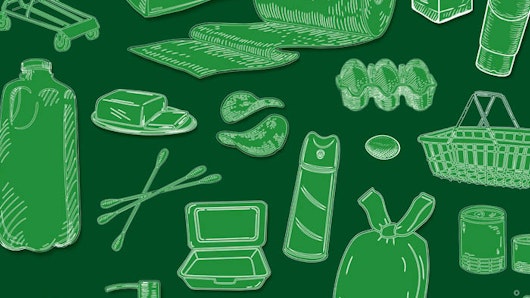
Help stop greenwashing in Aotearoa
We need your help to call out dodgy 'green’ claims.
